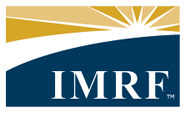If you are leaving your current IMRF employer, you may have questions about what you should do with your IMRF contributions.
If You Will Still be Participating in IMRF
If you are changing jobs from one IMRF employer to another and will be making IMRF contributions through your new employer, you do not have to do anything about your IMRF service credit:
- IMRF will automatically keep your service credit and contributions on file from your previous employer
- Your service credit and contributions will continue to build when your new employer reports your wages and contributions
Your next Personal Statement of Benefits will show you your total service credit under each IMRF employer you have worked for. You need a Member Access account to view your Personal Statement of Benefits.
If You Won't Be Participating in IMRF
If you will not continue to participate in IMRF, you can leave your contributions on deposit with IMRF or, in most cases, you can take a refund. You are not required to take a refund when you leave your IMRF employer. There is no “deadline” for you to make your decision, but you will not earn any interest on your contributions if you end up taking a refund, no matter how long you have left them with IMRF. Once you reach your required minimum distribution (RMD) age, you must withdraw them. (See www.irs.gov for more information about your RMD.)
Leave Your Contributions on Deposit With IMRF
If you leave your contributions on deposit with IMRF, you are considered an “inactive” member. This option makes sense if you are vested for an IMRF pension or if you think you may work for another IMRF or reciprocal system employer in the future. When you are an inactive member:
- You should sign up for a Member Access account if you don’t already have one. With Member Access you can keep your personal information up to date, view your account balance and service credit, create pension estimates, and view estimates of your death benefits.
- You need a Member Access account to view your annual Member Statement from IMRF.
Take a Separation Refund
When you take a refund of your IMRF contributions, you lose all of your service credit and you give up your right to any future IMRF pension and death benefits. Consider this decision carefully if you are vested or if it is likely you will go back to work for another position covered by IMRF or an Illinois reciprocal retirement system.
In order to take a refund:
- You must terminate employment with (stop working for) all IMRF employers.
- If you are at retirement age and eligible to receive a monthly pension of $100 or more, you cannot take a refund of your contributions unless you are going to directly rollover your contributions into another qualified retirement plan to purchase service credit, such as a pension plan you belong to in another state.
If you decide to take a refund, you have two options on what to do with your money. Each option has different tax consequences:
| Rollover your refund | Receive a direct payment |
|---|---|
Rolling over your refund offers you tax benefits.
|
|
How to Apply for Your Refund
To apply for a refund online, sign in to your Member Access account and follow the prompts.


